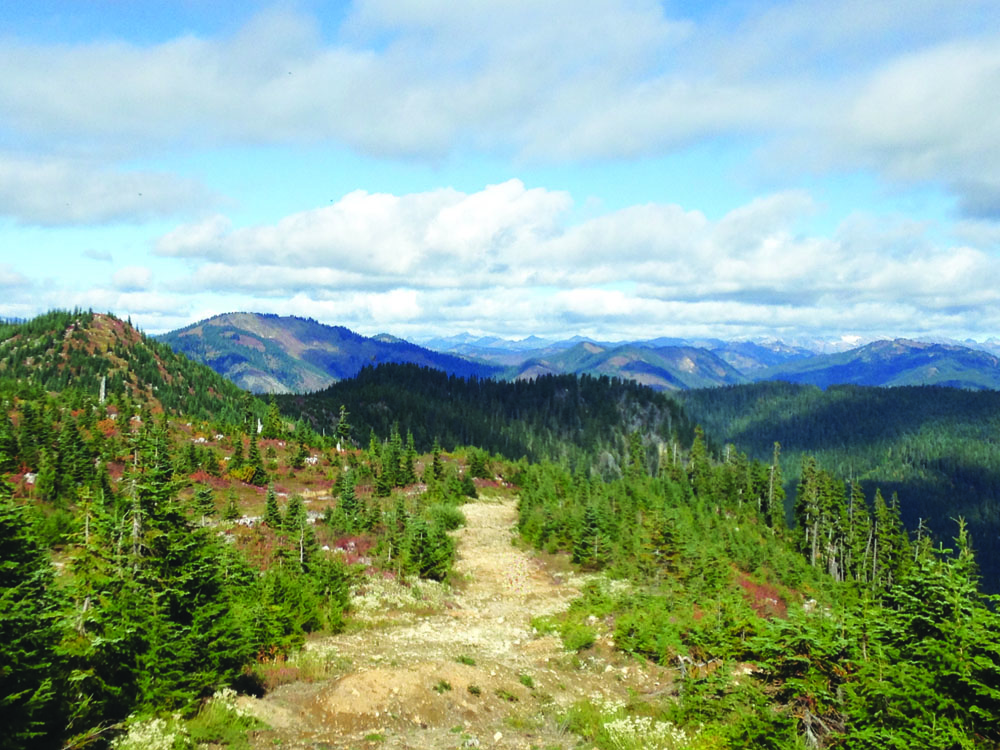Mountain Camp: Tulalip Tribes to develop pilot summer camp program in Snoqualmie National Forest

Submitted by Francesca Hillery, Tulalip Tribes Public Affairs
The Tulalip Tribes has been awarded a grant from the Environmental Protection Agency (EPA) and the Bureau of Indian Affairs (BIA) to start an exciting two-year pilot program for a youth summer camp in the Snoqualmie National Forest.
The five-day, overnight camp will help connect Tulalip 7th and 8th graders to their ancestral mountain lands, and will take place in August.
The camp will be situated at swədaʔx̌ali, “Place of Mountain Huckleberries”, a high elevation mountain meadow area, forty-five minutes north of the town of Skykomish, off of Highway 2. The Tulalip Tribes has a memorandum of understanding (MOU) for co-stewardship with the Snoqualmie National Forest, as all of the national forest lies within the ceded territories, reserved in the 1855 Treaty of Point Elliot. Tribal members have been harvesting huckleberries and other cultural resources under this MOU for several years at swədaʔx̌ali and throughout the national forest.
“One of the most important things about Mountain Camp is getting our youth back onto their mountain areas, and educating them, so they understand they have treaty rights there,” said Jason Gobin.
The vision for the camp is to nurture the connection for tribal youth to the natural world, and to inspire their curiosity, respect, knowledge and passion for the environment. Grounded in Tulalip’s own cultural teachings and traditions, the program will build on who they are as Coast Salish peoples.
The Mountain Camp Advisory Committee, made up of cultural and natural resource staff and community members, has met several times to shape the camp agenda and educational outcomes. The learning objectives for youth who attend this camp are:
To learn about tribal history, treaty rights, and the co-stewardship of the area.
Learn about the mountains from elders.
Develop competency in rustic camping in the outdoors, including safety, cooking, dressing, and backpacking.
Learn about the traditional ways of harvesting and being in the outdoors.
Learn some hands on approaches of work with natural and cultural resources staff.
Promote team building, problem solving, communication and cooperation.
“I want our children to know that as Tulalip they are more than just these 22,000 acres, more than the surrounding saltwater,” said Patti Gobin, who is on the Mountain Camp Advisory Committee. “Our ancestral homelands were so much greater,” she continued. “They extended from the whitecaps of the Salish Sea, to freshwater rivers, all the way up to the whitecaps of the Cascade Mountains.”
The YMCA is a recent partner in the pilot and has been contracted to set up the camp and provide security and meals.
“I am incredibly excited for this unique opportunity to work with the Tulalip Tribes,” said Chris Hagan, director of operations for the Seattle YMCA’s B.O.L.D. & G.O.L.D Mountain School, whose focus is Boys/Girls Outdoor Leadership Development. “We work with close to 1500 students annually on expeditions ranging in length from 1-22 days. We engage the youth in activities such as backpacking, rock climbing and mountain climbing in a wilderness environment.”
Tribal youth in the 7th and 8th grades are eligible to apply beginning March 21st until April 24. As this is the first year of the pilot summer camp, there are only eleven spaces available, with preference going to eighth graders. Because of the grant funding, the program will be free this year.
A community meeting will be held for interested tribal youth and their families on Thursday, April 2 at 6:30 p.m. in the Tribal Administration Building, Room 162. A presentation on the camp will be made, and Tulalip instructors and the YMCA staff will speak and answer questions. Applications will be made available.
For more information please contact Libby Nelson (Project Coordinator) at 360.716.4639 or email: lnelson@tulaliptribes-nsn.gov. You can also contact Kelly Finely (Camp director) at 360.716.4604 or email: kfinley@tulaliptribes-nsn.gov.
